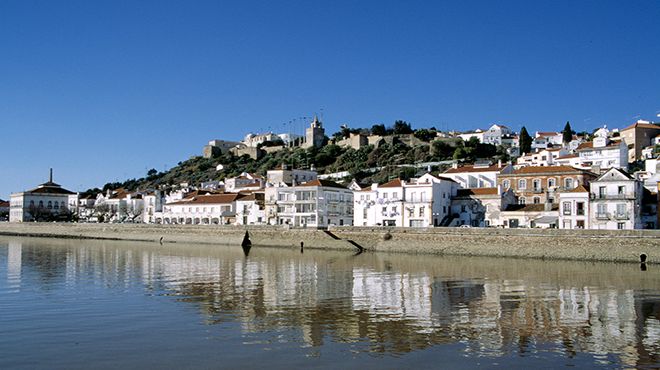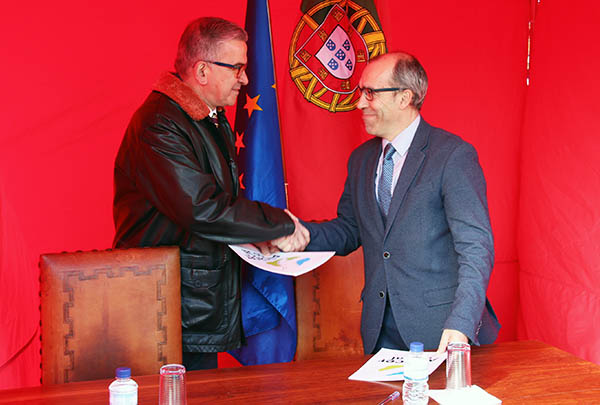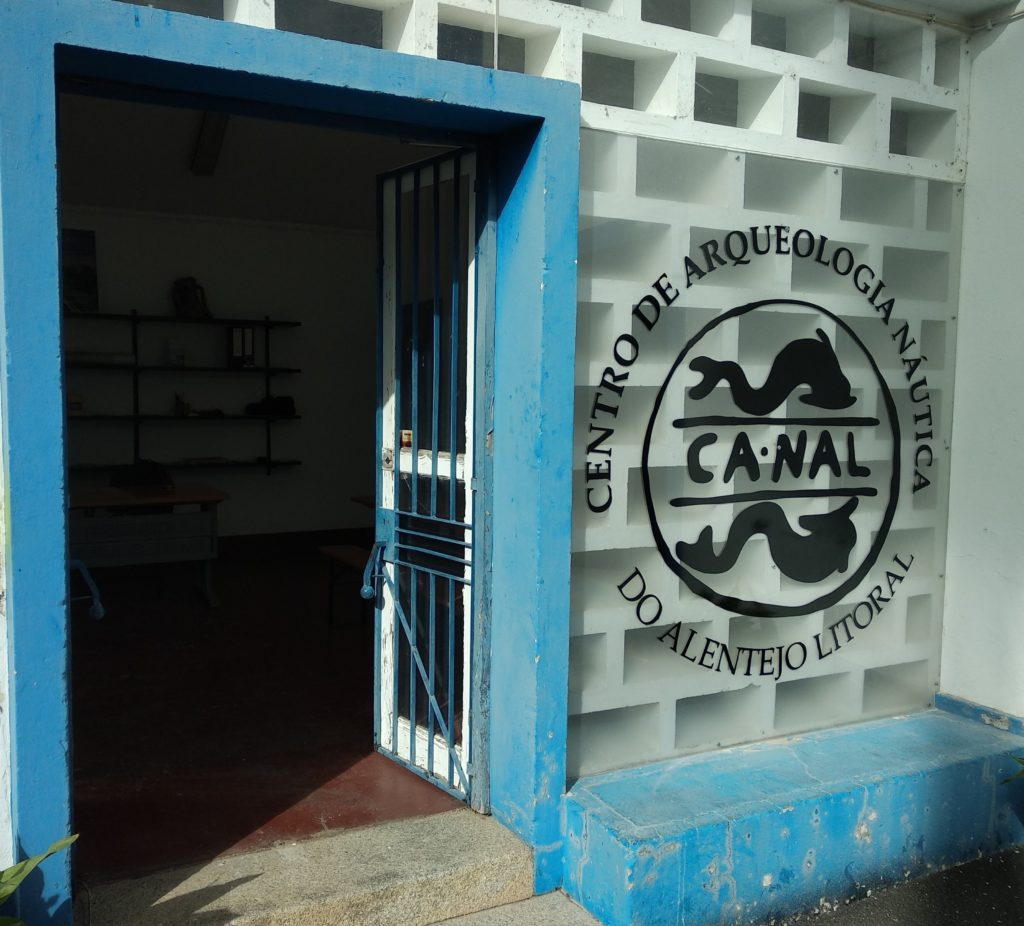 The scientific and academic research project that will explore the underwater cultural heritage of the Sado River took an important step this Wednesday, the 7th, with the signing of the lending contract between the Municipality of Alcácer do Sal and the Faculty of Social and Human Sciences of Universidade Nova de Lisboa, which establishes in Ameira the headquarters of CANAL – Center for Nautical Archeology of Alentejo Litoral.
The scientific and academic research project that will explore the underwater cultural heritage of the Sado River took an important step this Wednesday, the 7th, with the signing of the lending contract between the Municipality of Alcácer do Sal and the Faculty of Social and Human Sciences of Universidade Nova de Lisboa, which establishes in Ameira the headquarters of CANAL – Center for Nautical Archeology of Alentejo Litoral.
The ceremony, which took place at the CANAL premises, was attended by, among others, the Secretary of State for Science, Technology and Higher Education, the Mayor of Alcácer do Sal, the President of the Municipal Assembly of Alcácer, the Commander of Porto de Setúbal and the regional director of Culture of the Alentejo.
“It is an immense honor to sign this contract along this river of cultures of ours”, said Chamber president Vítor Proença, at the beginning of his speech, in which he highlighted the municipality's interest in preserving its history.
"It is memory that projects us into the future, so the signing of this contract has a very large symbolic load", he added, also saying, regarding the facilities where the Center will operate, which had "the expectation of being able to host a project there. like this one, extraordinarily interesting”, which will open “huge doors with the work that is already being developed”.
 Alexandre Monteiro, responsible for the project, expressed his satisfaction at seeing this work grow, stressing that the river has “an immense source, with enormous historical-archaeological potential”. “We have the indicated partners for this project. We will be able to make the river speak and tell its story”, he said.
Alexandre Monteiro, responsible for the project, expressed his satisfaction at seeing this work grow, stressing that the river has “an immense source, with enormous historical-archaeological potential”. “We have the indicated partners for this project. We will be able to make the river speak and tell its story”, he said.
Francisco Caramelo, director of the Faculty of Social and Human Sciences of the Universidade Nova de Lisboa, also praised the link between the faculty “to this illustrious and enlightened municipality, which recognizes the importance of its heritage” and underlined the willingness of the Universidade Nova to “closer relationships and making heritage something of value”.
Secretary of State Maria Fernanda Rollo stressed, in her speech, “the responsibility of everyone to look after the heritage, biodiversity and wealth of the immense knowledge transmitted by our ancestors”.
For the government official, the CANAL project can even help in the fight against school failure, in a world where many of the current professions will disappear and there is a risk not to continue studying until higher education.
“I imagined this fantastic thing, in this magical setting of Alcácer, and followed Dr. Alexandre's vision. It takes courage and belief and we have people here who are willing to help and innovate, he concluded.
In September 2015, the City Council, the Institute of Archeology and Paleosciences and the Institute of Contemporary History of FCSH/UNL signed a cooperation protocol to investigate the underwater heritage, between the city and the Phoenician trading post of Abul, thus giving rise to the project for the Center of Nautical Archeology of Alentejo Coast.
 The CANAL proposes to: locate, identify and characterize shipwrecks or other submerged structures in the area; determine the historical-archaeological nature of the maritime-fluvial cultural landscape in the region; develop the territory's tourist-archaeological potential; train participants in fluvial and underwater archeology, through the implementation of international nautical archeology projects; sensitize the population to the importance of memory linked to the Sado and the necessary preservation of its fluvial-maritime heritage; realization of “summer schools” for archeology students, divers and fishermen.
The CANAL proposes to: locate, identify and characterize shipwrecks or other submerged structures in the area; determine the historical-archaeological nature of the maritime-fluvial cultural landscape in the region; develop the territory's tourist-archaeological potential; train participants in fluvial and underwater archeology, through the implementation of international nautical archeology projects; sensitize the population to the importance of memory linked to the Sado and the necessary preservation of its fluvial-maritime heritage; realization of “summer schools” for archeology students, divers and fishermen.


















Comments